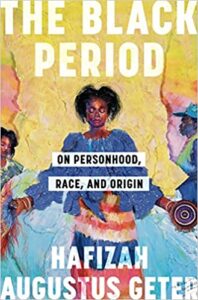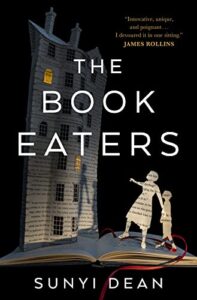Buy this from Bookshop.org to support local bookstores and the Lesbrary!
In 2023, I was a judge for the Nonfiction category of the Lambda Literary Awards. One of the books I read—the one that ended up winning for the category—was The Black Period: On Personhood, Race, and Origin. This is a brilliant, expansive book that I don’t feel qualified to really speak about, because there are so many layers going on in this narrative.
Geter is a poet, and you absolutely tell in this memoir. There are so many shining lines—”Safer to be accepted than loved, I thought.”—even when describing seemingly inconsequential details, like, “Even though she laughed constantly, it was like every laugh took her by surprise.”
This book is an embodiment of the idea that the personal is political. While this is in some senses a memoir, it’s also much broader than that. Geter traces back how her life is connected to all that came before it: her disability is connected to her parents’ health problems, which are connected to the racism at the foundation of the United States.
This is why The Black Period doesn’t fit neatly into the memoir category: it’s also a history book, and a collection of essays about art criticism and Afrofuturist thought, and it’s also about the connected struggles of Indigenous and Black people in the United States. Oh, and it includes original artwork from her father, a well-respected artist in his own right.
I can’t believe this book, which has won multiple awards and made several “best of” lists, is still so underread, even now that it’s available in paperback. This would be a fascinating book to read in a group, or to study in a class. I need you all to go out and read it so we can talk about it together. It’s one I can’t stop thinking about.



